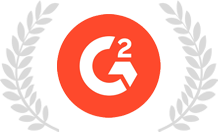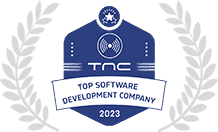Artificial Intelligence (AI) is transforming industries globally, but perhaps nowhere is its impact more profound than in healthcare. From streamlining operations to enhancing patient care, AI applications have introduced an era of precision and efficiency in the medical field. This article explores the transformative power of AI in healthcare, examining its applications and benefits.
What is AI in Healthcare?
AI in healthcare refers to the use of artificial intelligence technologies—such as machine learning (ML), natural language processing (NLP), and robotics—to mimic human cognition in the analysis, interpretation, and comprehension of medical data. AI’s potential in healthcare lies in its ability to learn from data and improve over time, offering solutions that help medical professionals make more accurate decisions and provide better care.
AI in Healthcare: Transforming Diagnostics and Treatment
When it comes to diagnosing diseases, AI has significantly altered the landscape. Traditional diagnostic methods rely heavily on human judgment, which, while effective, can sometimes lead to errors. AI, with its data-crunching capabilities and pattern recognition, can complement human expertise to improve accuracy.
1. AI for Medical Imaging and Diagnostics
Medical imaging is one area where AI has demonstrated extraordinary potential. AI algorithms can now detect conditions like cancer, fractures, and brain disorders by analyzing imaging data faster and more accurately than humans.
| Application | Benefit |
|---|---|
| Cancer Detection | AI can analyze mammograms, identifying early signs of cancer, even those too subtle for human eyes. |
| Radiology | AI models are capable of processing CT scans, MRI, and X-rays, reducing errors in interpretation. |
By reducing the workload of radiologists and increasing diagnostic accuracy, AI has made diagnosing diseases faster, more efficient, and less prone to error.
2. Personalized Medicine and Treatment Plans
One of the most revolutionary applications of AI in healthcare is its role in personalized medicine. By analyzing a patient’s genetic information and medical history, AI can tailor treatment plans that are far more effective than one-size-fits-all approaches.
AI-driven systems are able to:
- Predict treatment outcomes by analyzing vast amounts of data.
- Recommend personalized drug combinations for chronic diseases like cancer and diabetes.
- Assist in genome sequencing to identify hereditary conditions.
AI in Healthcare: Enhancing Patient Care and Management
Healthcare is not just about diagnosis and treatment; patient management is equally critical. AI helps streamline administrative tasks, manage patient records, and even improve patient monitoring.
3. AI for Remote Patient Monitoring
The rise of wearable technology has enabled healthcare providers to monitor patients’ vitals in real-time, using AI-powered devices to analyze data such as heart rate, blood pressure, and glucose levels. This real-time monitoring can alert both patients and doctors to potential issues before they become critical, ensuring timely interventions.
4. AI in Telemedicine
Telemedicine has become an essential service in modern healthcare, especially in the wake of the COVID-19 pandemic. AI plays a significant role by facilitating better video consultations, triaging patient symptoms, and even assisting in remote diagnoses.
| AI Feature | Benefits |
|---|---|
| Chatbots | Initial patient screening and answering basic queries. |
| Symptom Checker | AI-driven symptom assessment tools aid in pre-diagnosing conditions before medical consultation. |
AI in Healthcare: Revolutionizing Drug Development
The pharmaceutical industry has also experienced an AI-driven transformation. Drug discovery is traditionally a lengthy and expensive process. However, AI is significantly reducing the time it takes to bring new drugs to market.
5. Accelerating Drug Discovery
AI algorithms can simulate chemical reactions and analyze large datasets, drastically shortening the time required to identify promising drug candidates.
6. AI for Predicting Drug Interactions
By analyzing patient data and current medications, AI can predict potential drug interactions, ensuring safer and more effective treatments.
AI in Healthcare: Surgical Assistance and Robotics
In surgical procedures, precision is key. AI-powered robotics are enabling more precise and minimally invasive surgeries, which translate to faster recovery times and fewer complications for patients.
7. Robotic-Assisted Surgery
AI-driven robots can assist surgeons in performing complex procedures, such as those in cardiology or orthopedics, with greater precision. These robots can make real-time adjustments, enhancing surgical accuracy and reducing human error.
AI in Healthcare: Overcoming Ethical and Security Challenges
While AI offers numerous benefits, its integration into healthcare does come with challenges—particularly ethical concerns and data privacy issues.
8. Ethical Concerns in AI Implementation
There are valid concerns about biases in AI algorithms, particularly in predictive analytics. Ensuring that these algorithms do not discriminate based on factors like race or gender is a challenge that must be addressed through rigorous testing and transparency.
9. Data Security and Patient Privacy
Healthcare data is highly sensitive, and with the increasing use of AI, the risk of data breaches grows. Robust cybersecurity measures are necessary to protect patient data and ensure AI applications meet legal and ethical standards.
AI in Healthcare: Benefits and Future Potential
10. Increased Efficiency
AI significantly reduces the time needed for diagnostics, administrative tasks, and treatment planning, freeing up healthcare providers to focus on patient care.
11. Improved Accuracy
AI minimizes human errors in diagnosis, treatment, and surgery, leading to better patient outcomes.
12. Cost Reduction
By optimizing hospital operations and reducing errors, AI helps reduce healthcare costs, benefiting both providers and patients.
20 Unique FAQs on AI in Healthcare
1. How does AI improve medical diagnostics?
AI enhances diagnostic accuracy by analyzing large datasets, identifying patterns, and minimizing human error.
2. Can AI replace doctors in the future?
AI is a tool to assist doctors, not replace them. It enhances decision-making but cannot replicate human empathy or clinical judgment.
3. How does AI help in drug development?
AI speeds up drug discovery by analyzing chemical reactions and identifying potential drug candidates more efficiently.
4. What are the ethical challenges of AI in healthcare?
The main challenges are ensuring unbiased algorithms, patient data privacy, and addressing the lack of transparency in AI decision-making.
5. Is AI used in surgery?
Yes, AI-driven robots assist in surgeries, improving precision and reducing the risks associated with human error.
6. How does AI contribute to personalized medicine?
AI analyzes genetic and medical data to create personalized treatment plans, improving the effectiveness of care.
7. What role does AI play in telemedicine?
AI helps in triaging patients, assessing symptoms, and facilitating remote diagnoses in telemedicine.
8. Can AI predict diseases before they occur?
Yes, AI can analyze health data to predict the likelihood of developing certain diseases and recommend preventive measures.
9. How is AI used in patient monitoring?
AI powers wearable devices that monitor vital signs, providing real-time health data to healthcare providers.
10. What are the benefits of AI in healthcare administration?
AI streamlines administrative tasks like scheduling, patient record management, and billing, improving overall efficiency.
11. How does AI assist in cancer diagnosis?
AI analyzes medical images to detect cancer early, sometimes identifying signs that may be missed by human eyes.
12. What are AI chatbots in healthcare?
AI chatbots assist in answering patient questions, triaging symptoms, and guiding patients to the appropriate healthcare services.
13. What are the limitations of AI in healthcare?
AI still requires human oversight, and its accuracy depends on the quality of the data it is trained on. Additionally, there are concerns over data privacy and ethical use.
14. How does AI help reduce healthcare costs?
AI optimizes hospital operations, reduces diagnostic and treatment errors, and shortens drug development timelines, leading to cost reductions.
15. How is AI improving mental health care?
AI tools analyze patient data to help diagnose mental health conditions, provide therapy recommendations, and even offer mental health chatbots.
16. How does AI help with chronic disease management?
AI can predict flare-ups in chronic conditions like diabetes or hypertension, enabling timely intervention.
17. What are some real-world examples of AI in healthcare?
AI is used in IBM Watson Health for data analysis, Google’s DeepMind for medical imaging, and Babylon Health for virtual doctor consultations.
18. Can AI detect rare diseases?
Yes, AI can analyze genetic and medical data to help identify rare diseases that may be difficult to diagnose manually.
19. How does AI enhance medical research?
AI helps researchers analyze large datasets quickly, identifying patterns that would take humans much longer to find.
20. Is AI regulated in healthcare?
Yes, various regulatory bodies oversee the use of AI in healthcare to ensure safety, accuracy, and ethical standards are met.
- Natural Language Processing (NLP): How AI Understands Human Language - October 4, 2024
- AI in Autonomous Vehicles: Driving the Future of Transportation - October 4, 2024
- The Role of AI and Automation in NetSuite: Enhancing Business Efficiency - October 4, 2024




















